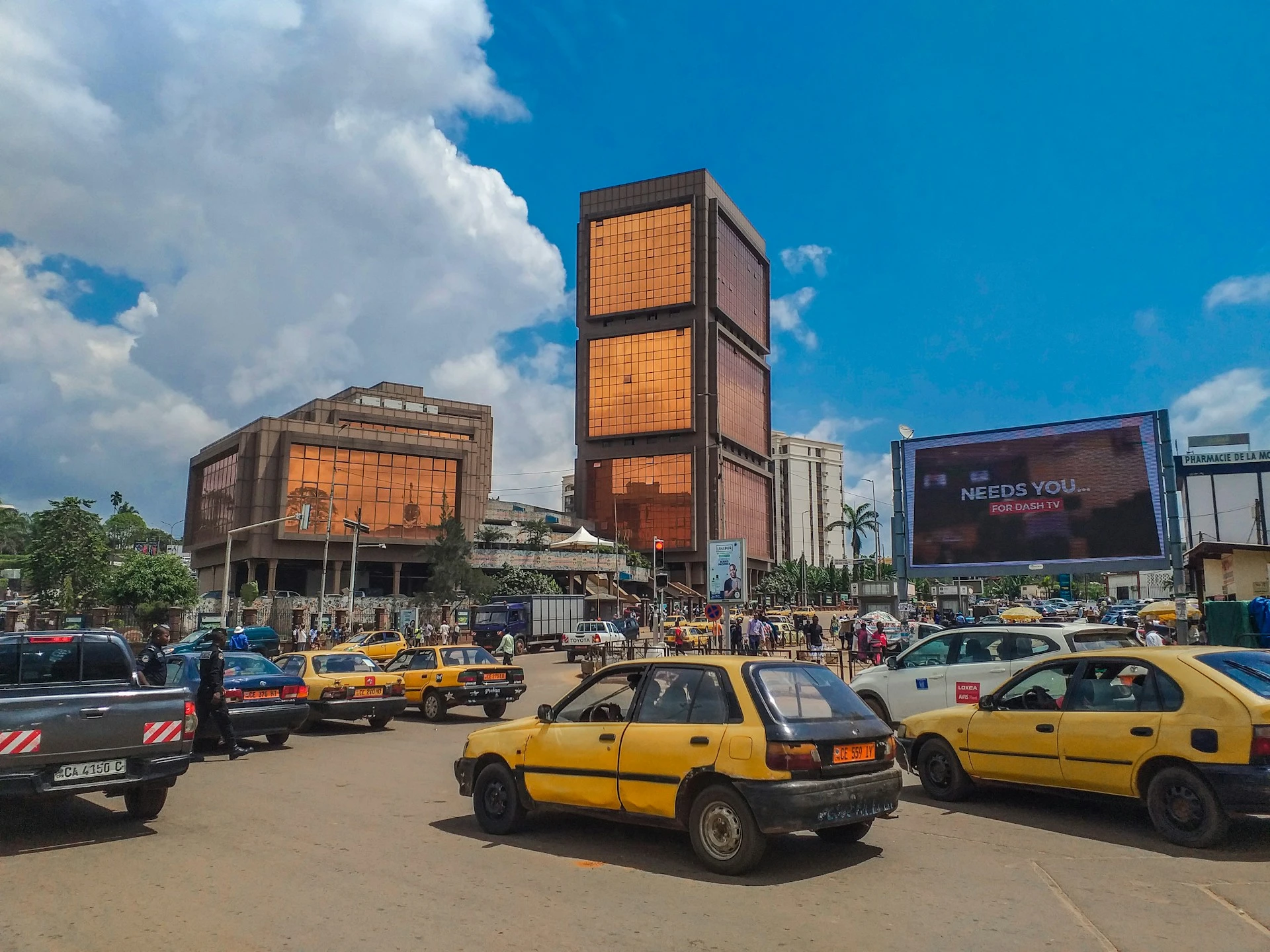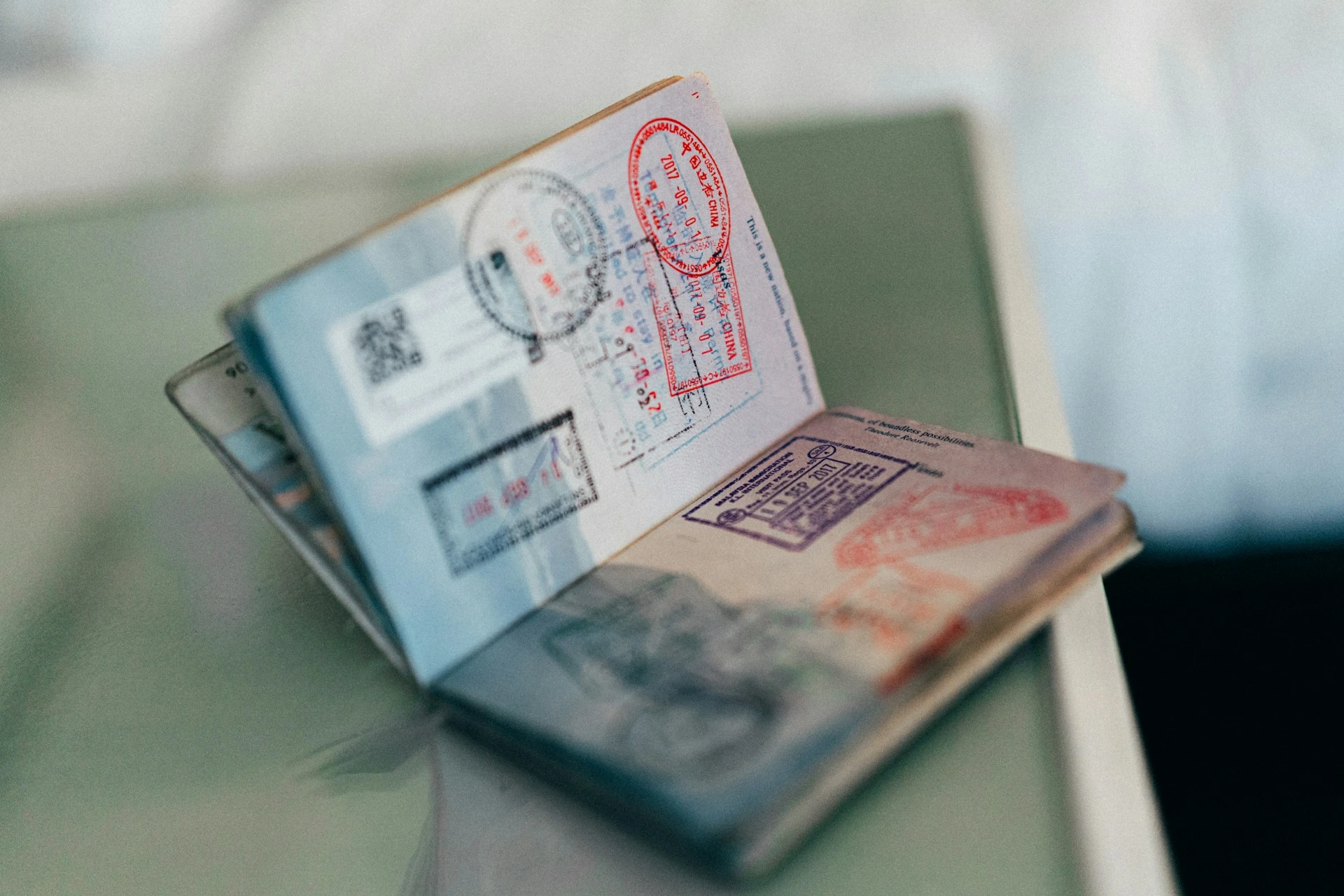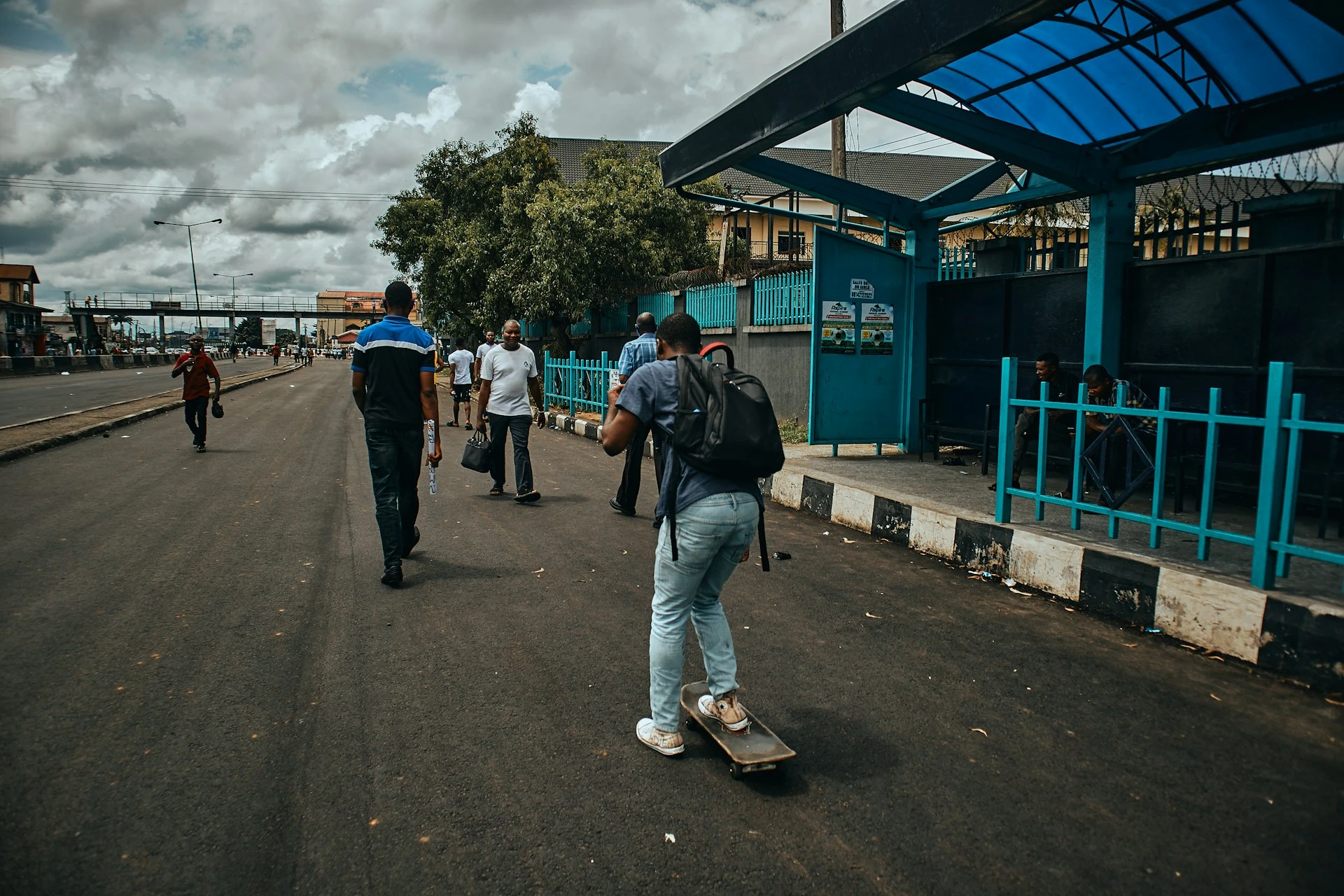Cameroon eVisa – Simple Guide to Apply, Fees & Requirements


Traveling to Cameroon has become simpler thanks to the Cameroon eVisa system. Instead of long embassy visits and waiting weeks for a paper visa sticker, travelers can now apply online and receive electronic approval before their trip. Whether you are planning a short stay for tourism, visiting family, or traveling for business, the Cameroon electronic visa makes the process smoother.
But how exactly does it work? What are the visa requirements, fees, and processing times? And more importantly—can you really visit Cameroon without stepping foot in an embassy?
This guide breaks down everything you need to know about the Cameroon e visa, from the application steps to the documents required, so you can travel with confidence.
Cameroon eVisa – What It Is and Who Needs It
The Cameroon eVisa is a digital authorization that allows foreign nationals to enter Cameroon for tourism, business, or family visits. It replaces the old paper-based visa issuance process. Instead of receiving a visa sticker inside your passport at a diplomatic mission, you get a digital approval with a QR code.
If you’re wondering, Does Cameroon have an eVisa? yes, it does. It applies to most visitors, but your nationality determines whether you can apply online or must go through a Cameroonian embassy. US citizens, for example, cannot travel without a visa, so the eVisa is mandatory.
The system is designed to make obtaining visas faster, with fewer embassy visits and reduced paperwork. However, it still requires careful preparation, as missing required documents can delay the process by several weeks.
Cameroon Electronic Visa: Key Features
The Cameroon electronic visa is not just convenient—it also comes with clear rules. It is valid for short stay travel and may cover single or multiple entries depending on your request.
Some features include:
| Feature | Details |
|---|---|
| Validity period | Usually 30–90 days (depends on travel dates and type of visa) |
| Visa application fee | Varies by nationality and visa type |
| Processing time | Ranges from a few days to several weeks |
| Issuing visas | Done online with digital confirmation |
| Entry requirement | Must hold a valid travel document and meet health regulations |
This system was created to support both tourism and business. For example, travelers on an employment contract can apply through the same platform, while family visitors may need to upload a child’s birth certificate or an invitation letter.

Visa Application: Step-by-Step Guide
Applying for a Cameroon e visa is fairly simple, but you’ll want to pay close attention to the details. Small errors—like entering the wrong passport number or uploading unclear scans—are some of the most common reasons applications get delayed.
By following each step carefully, you’ll avoid unnecessary setbacks and make sure your application moves smoothly through the system.
Step 1: Apply Online
Head to the official Cameroon eVisa portal. Make sure you’re using the correct website, as external websites or third-party platforms may charge higher fees or provide outdated information. Create an account if needed and start your application.
Step 2: Fill in Personal and Passport Details
Provide your passport information exactly as it appears in your valid travel document. Even a small mismatch in your name, nationality, or date of birth can cause problems.
Double-check the expiry date too—your passport must be valid for at least six months beyond your travel dates.
Step 3: Upload Necessary Documents
Attach digital copies of your valid passport, flight ticket showing your entry and final destination, and proof of accommodation issued (hotel booking or residence address). Make sure the scans are clear, in color, and within the file size limits.
Step 4: Add Supporting Documents
Depending on your situation, you may need to provide extra paperwork:
- Birth certificate or child’s birth certificate if you’re applying for minors.
- Employment contract or invitation letter if you’re traveling for business.
- Proof of sufficient funds for your stay.
These required documents strengthen your case and speed up visa issuance.
Step 5: Pay the Visa Application Fee
The visa application fee must be paid online before submission. Costs vary depending on your nationality, type of visa (tourism, business, or special program), and whether you request single or multiple entries. Keep a copy of your payment confirmation for your records.
Step 6: Submit and Wait for Confirmation
Once you’ve uploaded everything and paid the fee, submit your application. You’ll receive a tracking number and, in most cases, a QR code linked to your file.
This lets you check your application status at any time without needing to contact the Cameroonian embassy or consular services directly.
Step 7: Attend Biometric Enrolment (If Required)
Some applicants may be called for biometric enrolment at a diplomatic mission or high commission. This usually applies to long-term or complex applications. You’ll need to provide fingerprints, photos, and sometimes additional documents in person.
Consular Services and Required Documents
While the Cameroon eVisa is applied for online, consular services remain a crucial part of the process. Think of them as the final checkpoint—they review your application, verify documents, and ensure that your file complies with Cameroon’s immigration policies. In some cases, consular staff may request additional paperwork or even call you for an in-person interview before visa issuance.
This step is particularly important because Cameroon wants to make sure that foreign nationals arriving in the country meet all visa requirements.
The documents you provide not only prove your identity but also confirm your travel intentions, health status, and financial ability to support yourself during your stay.
Core Required Documents
Most applicants will need to prepare the following necessary documents before submission:
- Valid passport – Must have at least six months of validity remaining beyond your travel dates, plus blank pages for entry stamps.
- Recent passport-sized photo – Must follow the official size and format rules (plain background, no filters).
- Flight ticket – Proof of your planned entry and final destination; round-trip tickets are often preferred.
- Accommodation issued – A hotel booking, residence address, or host details to show where you will stay in Cameroon.
- Yellow fever vaccination certificate – Mandatory for all travelers; you may be denied entry without it.
- Proof of sufficient funds – Bank statements, pay slips, or sponsorship letters showing you can cover your expenses.
Additional Documents for Specific Cases
Depending on your situation, consular staff may request more documents:
- Child’s birth certificate – Required if minors are included in the application.
- Employment contract – For those entering under a work arrangement or official assignment.
- Invitation letter – Common for business travelers, family visits, or special program applicants.
- National identity cards – Sometimes requested for regional or dual-national applicants.
These requirements are designed to prevent delays at the border and ensure that all travelers have clear reasons to enter Cameroon.

Why Consular Services Still Matter
Even though most travelers can now apply online, Cameroon’s diplomatic missions—including embassies, consulates, and high commissions—are still responsible for:
- Verifying authenticity of documents.
- Handling complex or sensitive applications.
- Managing biometric enrolment for certain applicants.
- Assisting travelers who face technical problems during the online process.
If your case is straightforward, you may never need to visit a Cameroonian embassy. But for applicants with unusual circumstances, consular support ensures that the visa process remains secure and transparent.
Visa Sticker vs. E Visa – What’s the Difference?
In the past, travelers had to collect a visa sticker from the high commission, consulate, or embassy. That meant mailing passports or making multiple embassy visits.
The new e visa eliminates this by offering digital visa issuance. You only need your approved QR code and valid travel documents. Still, in some cases, embassies may issue a sticker if you request it or if online systems face delays.
Here’s a quick comparison:
| Visa Type | Collection | Processing Time | Convenience |
|---|---|---|---|
| Visa Sticker | Embassy visit required | Several weeks | Low |
| E Visa | Delivered online | Few days to weeks | High |
This shift saves time and reduces stress for most travelers.
Processing Time and Application Fees
How long does a Cameroon eVisa take? is one of the most common questions. The answer depends on nationality, type of visa, and the diplomatic mission handling your file.
On average:
- Standard processing takes 5–10 business days.
- Complex cases or missing documents can take several weeks.
- Express services may be available for additional fees.
As for cost, How much is an eVisa for Cameroon? fees vary. A short stay tourist visa costs less than a business visa with multiple entries.
All applicants must pay the visa application fee during submission. Keep in mind that additional fees may apply for urgent processing or consular services.
QR Code and Entry to Cameroon
Once approved, your eVisa comes with a QR code linked to your passport information. This code is scanned upon arrival at the airport or border to confirm your visa issuance.
Travelers must also present:
- Their valid passport
- Yellow fever vaccination certificate
- Proof of accommodation and sufficient funds
If your documents are incomplete, you may be denied entry. Always double-check the validity period and make sure your travel dates align with the approval.
Short Stay vs. Long Stay Options
When applying for a Cameroon eVisa, it’s important to understand the difference between short stay and long stay options. The majority of travelers only need a short stay visa, which is valid for tourism, business meetings, or visiting relatives. These usually allow entry for 30 to 90 days, depending on the type of visa you select during the application.
Longer visits—such as for work contracts, academic study, or residence—cannot be handled entirely online. These require direct processing through a Cameroonian embassy or consulate, as the paperwork and verification are more extensive.
To answer a common question: Can a US citizen travel to Cameroon without a visa? No. All US citizens must apply for a visa, even for a short trip. Some other nationalities may benefit from special program agreements or regional exemptions, but these are exceptions rather than the rule.
If you decide to extend your trip after entering Cameroon, you must apply for a residence permit once inside the country. Overstaying your approved validity period is considered a violation and may result in fines, deportation, or denial of future visas.
Short Stay vs. Long Stay: Key Differences
| Aspect | Short Stay Visa (eVisa) | Long Stay Visa / Residence Permit |
|---|---|---|
| Purpose | Tourism, family visit, business meetings, short-term study | Work, long-term study, residence, official contracts |
| Application Method | Apply online through the Cameroon eVisa portal | Apply via Cameroonian embassy, consulate, or high commission |
| Validity Period | 30–90 days depending on visa type | Beyond 90 days (often one year, renewable) |
| Required Documents | Passport, flight ticket, accommodation, yellow fever vaccination certificate | Additional documents: employment contract, university admission, or sponsorship letter |
| Biometric Enrolment | Sometimes required | Almost always required at a diplomatic mission |
| Extension Options | Must apply for residence permit after arrival | Renewed through immigration services or embassy support |
| Who Needs It? | Tourists, business visitors, short-term travelers | Workers, students, long-term residents |
Role of the High Commission and Embassies
Although the eVisa system minimizes embassy visits, high commissions and consulates remain central in issuing visas. They handle:
- Complex applications requiring verification
- Biometric enrolment for certain applicants
- Resolving issues when external websites or portals face downtime
Embassies also guide applicants through appeals if their visa is denied. In some countries, only a diplomatic mission can finalize the approval process.

Tips for a Smooth Cameroon eVisa Application
Even though the process is digital, travelers still face technical problems or delays when applying for a Cameroon eVisa. Issues often arise from incomplete forms, unclear document uploads, or applying too close to the travel date. With a bit of planning, you can avoid most of these pitfalls.
Here are practical tips to make your application stress-free:
Pros – If You Follow Best Practices | Cons – If You Ignore Them |
|---|---|
|
|
|
|
|
|
|
|
|
|
Conclusion: Travel to Cameroon Made Easier
The Cameroon eVisa is a major improvement for foreign nationals who want to visit Cameroon. With faster processing, reduced embassy visits, and clear online steps, it has simplified the way travelers obtain entry authorization.
From paying the visa application fee to uploading the necessary documents and receiving your QR code, the process is now more straightforward than ever. Still, it’s important to apply early, confirm your valid travel documents, and respect the validity period to avoid problems.
Whether you’re heading for business, tourism, or family visits, this guide ensures you know exactly how to apply, what to expect, and how much it costs. With the right preparation, entering Cameroon will be as smooth as your journey itself.